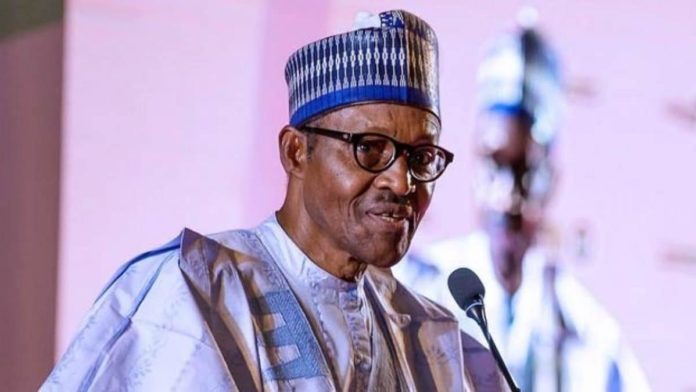President Muhammadu Buhari Thursday in Abuja advised Christian and Muslim leaders, and preachers generally, in the country to give more attention to issues that strengthen the family, and build society, describing them as “custodians of our values and of social ideals’’.
Speaking at the Joint National Conference of Nigerian Supreme Council for Islamic Affairs (NSCIA) and Future Assured Initiative on Repositioning the Muslim Family for National Development, President Buhari said the family provides the bedrock for any society, and deserved more attention in Nigeria.
“In this endeavour, our religious leaders and organizations are most important catalyst. They are the custodians of our values and of our social ideals. It is therefore, commendable that the Nigerian Supreme Council in collaboration with the Future Assured Initiative has risen up to this challenge.
“I, however, wish to call on all our religious leaders and organizations, both Christian and Muslim, to follow suit by redirecting important elements of their preaching and teachings on family issues with a view to broadening the sensitization of people at the grassroots level,’’ he said.
The President said the government would also put more effort in ensuring economic support, and empowering of family members for more stability.
“We have been conscious of the havoc poverty is wreaking on the family. We therefore believe that poverty alleviation is central to safeguarding the integrity of our families.
“Our administration introduced a number of economic empowerment and poverty alleviation schemes. Some of these directly impact on families while others have indirect effect on families through their multiplier effects.
“The first, and most robust programme, is the Social Investment Programme, which serves as a very broad framework for availing Nigerian families at the grassroots level different forms of economic support,’’ President Buhari added.
According to the President, many homes had benefitted from the Conditional Cash Transfer, while trader-moni and market-moni schemes have also been impactful.
“The school feeding programme has assisted immensely in supporting poor Nigerian families in getting their children enrolled and sustained in school,’’ he said.
On flagging-off of marriage counselling projects across the country, President Buhari noted that the search for national rebirth, efforts at fighting corruption, indiscipline and struggle for attitudinal change must all begin from the family unit.
“While we appreciate the significant role of the mass media and other public enlightenment channels and outfits in propagating and promoting positive values, we just have to acknowledge the fact that all these build, after all, upon the foundations that must have been laid down at home,’’ he said.
The President said most of the challenges affecting the family fall within the mandates and jurisdictions of the state governments, urging the governments to rise up to the challenges and do their full parts in the effort for social regeneration.
President Buhari commended His Eminence, Sultan of Sokoto, Sultan Muhammadu Sa’ad Abubakar and Future Assured Initiative, under the leadership of Her Excellency, the First Lady, Hajiya Aisha Muhammadu Buhari, for the projects on marriage and family.
In her remarks the First Lady said the project will identify critical marriage challenges and suggest relevant instruments for addressing them, which include sensitizing relevant stakeholders on their responsibilities.
“We have succeeded in assembling an array of Islamic scholars to further deliberate on these matters, with the belief that they will do justice to the issues,’’ she added.
The Senate President, Ahmad Ibrahim Lawan, said the Universal Basic Education should be fully implemented to compel parents to send their children to school, assuring that the National Assembly will work with the Executive to ensure compliance.
In His keynote address, His Highness, Emir of Kano, Muhammadu Sanusi II, admonished men to take full responsibility for their marriages, especially in economic terms, by marrying only when they can take care of a wife, and having children they can cater for.







